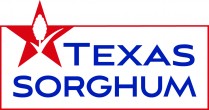Senator Cornyn Holds NAFTA Hearing with Industry Leaders—On Monday November 20, Senator John Cornyn convened a hearing of the Senate Finance committee in San Antonio to provide industry leaders the opportunity to address their respective concerns about the ongoing renegotiation of the North American Free Trade Agreement (NAFTA). The hearing was attended by Senator Cornyn, General Counsel for the United States Trade Representative Stephen Vaughn, Texas Farm Bureau President Russell Boening, Texas Oil & Gas Association President (and former Texas Agriculture Commissioner) Todd Staples, and other representatives from the automobile and business industries.
Senator Cornyn opened the hearing by expressing his belief that NAFTA has fundamentally worked for Texas and that the operative consideration for American negotiators ought to be “do no harm.” Then, after a brief opening statement by Mr. Vaughn, Senator Cornyn and the General Counsel took part in an extended question and answer series in which the Senator asked tough, and often vaguely answered, questions of Mr. Vaughn. Mr. Vaughn reassured the Senator and those in attendance that the administration still had the nation’s best interests at heart in the renegotiation process, but trade deficits with Canada and especially Mexico were symptomatic of market distortions that must be remedied.
Mr. Vaughn explained the blistering pace of these negotiations – with less time between negotiating rounds than any trade deal in recent history – as part of the administration’s commitment to “resolve uncertainty.” He then, however, went on to justify a proposed five-year sunset on NAFTA – a potential source of extreme uncertainty – as nothing more than a normal “performance evaluation.”
Mr. Boening delivered testimony on behalf of Texas Farm Bureau, articulating the success NAFTA has had in establishing consistent foreign markets for Texas food and fiber. Agricultural exports to Canada and Mexico under NAFTA have quadrupled, from $8.9 billion in 1993 to $38 billion today. Mr. Boening also spoke to the current state of the farm economy, suggesting that this would be a particularly damaging time to withdraw from two of our top three foreign markets for agricultural products.
As NAFTA negotiations continue through the rest of 2017, TGSA will keep you up-to-date on developments as well as provide you with opportunities to offer your opinions. If you would like to discuss this issue more, please contact Patrick Wade at Patrick@texassorghum.org.
Scholarship deadline TODAY—Applications for the National Sorghum Foundation-BASF Joint Scholarship closes toady. The scholarship will include a tuition award for the 2018-2019 school year as well as cover recipients’ cost to attend the 2018 Commodity Classic in Anaheim, California. Applicants must be pursuing an undergraduate or graduate degree in an agriculturally related curriculum. Students must be a child or grandchild of an NSP member, and undergraduates must be entering at least their second year of study by the 2018-2019 academic year.
Click here to download the application. For questions or to submit application materials, please contact Debra Lloyd at debral@sorghumgrowers.com or 806-749-3478.
TDA Policy Regarding New Dicamba Labeling—In response to EPA mandated label amendments requiring all applicators to complete dicamba or auxin-specific training prior to application of these products, TDA is providing its Texas specific policy regarding applicator training requirements. Interested parties should note that the aforementioned products are now federally Restricted Use Pesticides (RUP), in addition to the State Limited Use Pesticide designation under Texas Law.
TDA regulations do not require auxin or dicamba specific training. However, in order to satisfy the training requirements established by the new EPA mandated label requirements, TDA will acknowledge approved training provided by either: 1) Texas A&M AgriLIfe Extension Service or, 2) a registrant for the product approved for in-crop use on the dicamba-tolerant or auxin-tolerant crop.
The training must be approved by TDA and meet the following course content requirements:
- Application Timing
- Nozzle Requirements/Selection
- Wind Speed
- Ground Speed
- Boom Height
- Tank Cleanout
- Sensitive Crops and Buffer Zones
- Weather Conditions
- Drift, Volatility and Inversion
- Other Labeling Restrictions
The training must be a minimum of 50 minutes in length. Licensed applicators will be awarded 1 CEU in Laws and Regulations upon verified completion of the TDA approved training course. Applicators that are working under the supervision of a licensed applicator will not be given CEU credit for attending the training. Each participant who completes the training must be given a certificate of completing which must be retained by the participant in the participant’s records for two years. Course providers must follow the procedures set fourth in the Texas Pesticide Recertification Course Accreditation Guide. The training must be attended once every year. For more information click here or here.
EPA proposes 2-year delay of 2015 WOTUS rule. The EPA and Corps of Engineers have proposed a rule that would delay implementation of the 2015 WOTUS rule for two years. Currently, the 2015 rule is stayed by the United States Court of Appeals for the Sixth Circuit and the EPA is currently working through the required process to rescind the 2015 rule altogether. Why, then, does the EPA want a 2-year delay? They say they want to provide certainty to landowners that the 2015 rule will not go into effect if, for example, the 6th Circuit stay is lifted. Of course, this proposal will have to undergo a comment period before it can be published in the Federal Register. Meanwhile, the two-step rulemaking process to rescind and replace the 2015 rule altogether will continue. [Read article here.] This article first appeared in Texas Ag Law
Export Report— Sorghum: Net sales of 328,000 MT for 2017/2018–marketing-year high–were up 2 percent from the previous week and 26 percent from the prior 4-week average. Increases were reported for China (262,000 MT, including decreases of 3,000 MT) and unknown destinations (66,000 MT). Exports of 217,100 MT–a marketing-year high–were up noticeably from the previous week and from the prior 4-week average. The destinations were China (204,900 MT), Japan (10,500 MT), and Mexico (1,700 MT).










